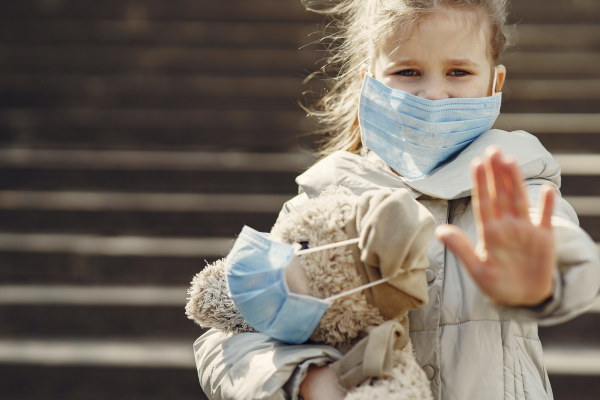If making health-care decisions regarding children in normal times is challenging, making parental decision during a global health pandemic — and while going through a divorce — is almost impossible.
In the spring, divorced parents were struggling with many challenging parenting questions. Although the question of whether to allow their children to travel between two homes was the most common one, there were many variations of the same question.
Should children in blended families go back and forth? If a parent who is a hospital worker be able to care for a child? Should a child be able to visit a parent who is residing with elderly grandparents? Can an immunocompromised parent oust the other parent by an order for exclusive possession of the home? Can a child vacation with a parent at a cottage with other family and friends?
In Ontario, judges decide dozens of emergency motions in virtual hearings and in written format. Most judges ruled that the children should continue to spend time with both of their parents in their separate homes. Despite the early rulings in this regard, parents continued to engage the courts with novel fact scenarios. These were all good questions that resulted in very thoughtful legal reasoning by the judges.
So what is the new horizon for divorce law and COVID-19?
Answer: To vaccinate or not to vaccinate a child.
There are valid reasons for both positions. The focus of the World Health Organization and the Centers for Disease Control has been on the discovery of a vaccination that will end the global pandemic. However, there is a growing population of anti-vaccinators.
This group believes the risks associated with vaccine outweigh the benefits, and therefore children and other vulnerable individuals should not get vaccinated. [At the time of this writing, at least one pharmaceutical company has halted laboratory testing of a COVID-19 vaccine due to negative outcome.]
Of course, competent adults are able to make their own decision as to whether to receive a vaccination against COVID-19. But parents of minor children make the parental decision to want to vaccinate their children.
In intact families, parents generally decide together, often consultation with their family doctor. In such families, there is no forum for parents who disagree to resolve their differing opinions on vaccinations. Those parents are forced to reconcile their views. However, separated parents have access to the courts in order to resolve their competing views. In such cases, making parental decision during a global health pandemic, the parents may delegate the decision-making authority to an independent judge.
That is exactly what happened in the recent case of Tarkowski v. Lemieux 2020 ONCJ 280. In that case Justice Penny J. Jones was faced with parents that were separated. These parents were not agreeing on whether their child should get vaccinated against the COVID-19 virus. The court wrote:
Since the trial ended, a world health pandemic has been declared relating to the COVID-19 virus.
Many people have tested positive for the virus, many people have become very ill with the virus, and many people have died. The medical researchers world-wide are in a rush to develop a vaccine. This pandemic is due to a novel corona virus and people have no community immunity towards it. Asymptomatic people are the frewuent spreaders of virus.
Addressing those who do not accept the risks of a vaccination, Justice Penny Jones quoted Justice R. John Harper in the case of C.M.G. v. D.W.S. [2015] O.J. No. 1840, who stated: “[t]here are no veritable scientific studies that have shown vaccinations to be harmful. The control and eradication of certain infectious diseases throughout the world is simply beyond dispute. The rationalization by those who are against vaccinations that such phenomena would have developed without the use of vaccinations is indefensible and illogical.”
Then Justice Jones stated: “Should a vaccine against COVID-19 become available, these parents will have to decide whether Avery should be vaccinated against it. Children and young people often show little or no reaction to the virus. Hence, a decision to vaccinate a child may be informed by a public health concern that COVID-19 is a virus that is easily spread and which disproportionately harms older people, and people with challenged immune systems.
“Ultimately, a decision to vaccinate Avery may be a decision to protect other vulnerable people against Avery spreading the disease. As any vaccine may pose some risk, and a new vaccine may pose unknown risks, it is imperative that Avery’s parents receive the same advice on this issue from a medical health professional.
“When and if such a vaccine becomes available, both parents should meet with the child’s doctor to discuss vaccination for Avery against COVID-19. In the event that the mother refuses to attend this meeting with the father and the doctor, or, at the meeting. And refuses to consent to the child being vaccinated, I am granting the father, as an incident of custody and access, the unilateral power to consent to Avery to be vaccinated against COVID-19.”
Share this article on:
